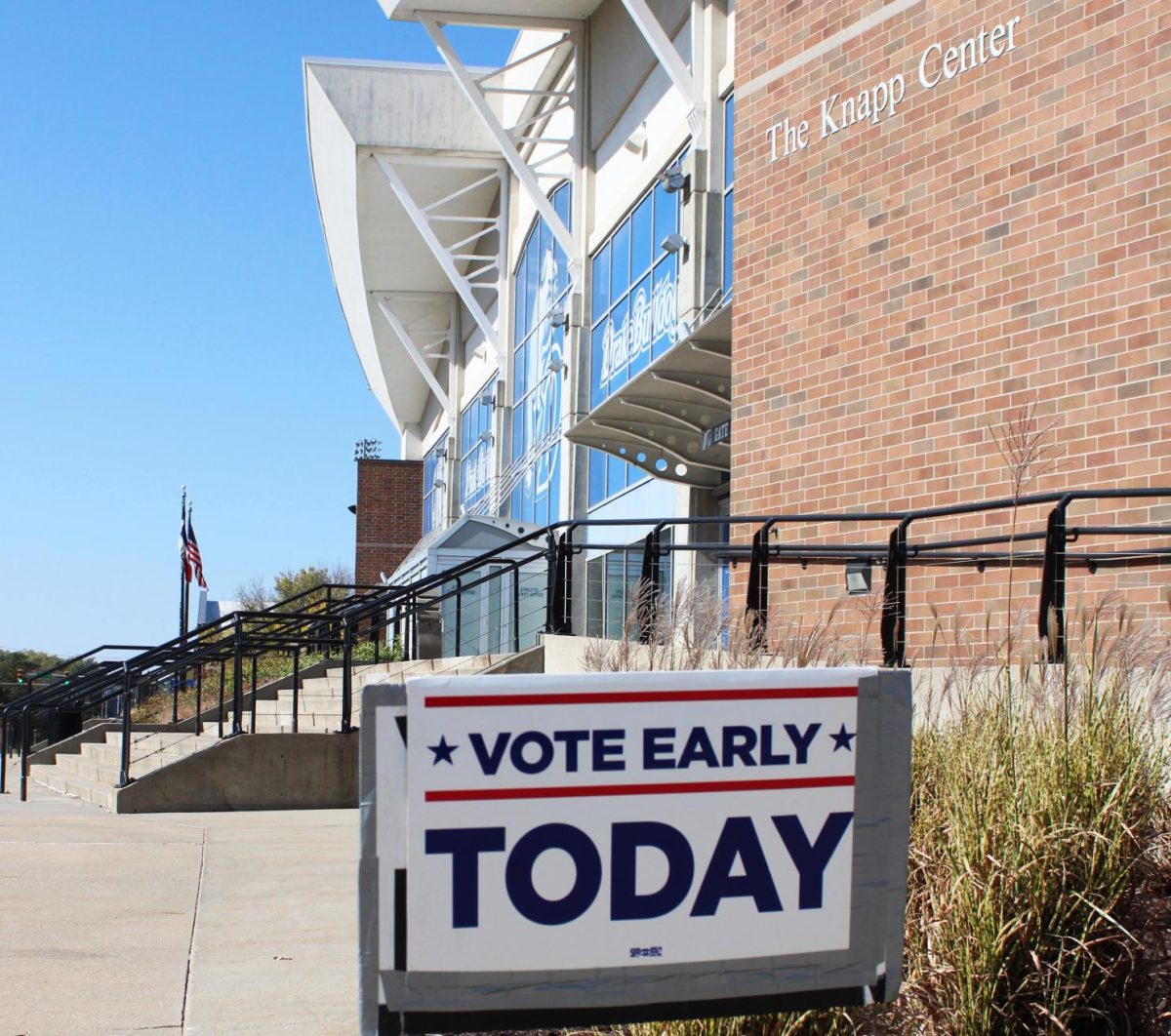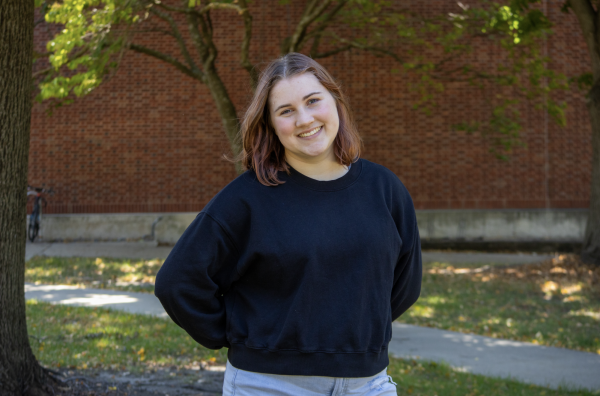As Election Day nears, anticipation is building among voters nationwide. While voters across the country are deciding which candidates to support, out-of-state college students are facing an additional dilemma: whether to cast their vote on campus or back home.
Two students have worked to provide nonpartisan election information and help students register to vote in Iowa or their home states: Chloe Lepak, the voter and civic engagement peer for the Office of Community Engagement, and Civic Engagement Student Senator Catherine Pollard.
In her role, Pollard has explored how to get students out to the polls.
“For Gen Z, we represent a really large percent of the population, and we are consistently the group that does not come out to the polls,” Pollard said. “And that’s not new to our generation. It’s always been that young people are just the people that do not get out to the polls. We have the potential to sway elections. We have the potential to really mobilize in a way that could have a very positive impact.”
According to Lepak, the students she has talked to while tabling for voter registration have been interested in voter registration information and excited about the election.
“Not a lot of people had voting plans, but they wanted one. They were eager to seek that out,” Lepak said.
In 2022, when she was a first-year, Lepak requested an absentee ballot from her home state of Oklahoma. However, Lepak ran into issues with having her ballot delivered. Additionally, Oklahoma requires absentee ballots to have a notarized signature. Lepak says taking the time to go get her ballot signed by a notary was a barrier to her voting.
“[Voting in person] is a little bit more accessible sometimes because you don’t have to research how to get an absentee ballot, how to get it notarized – if that’s part of the process – how to drop it off, how many stamps to put on it,” Lepak said. “There’s a lot of, unfortunately, barriers in voting, so I try to remove as many as I can for people in the capacities that I have.”
However, the deciding factor for Lepak switching her voter registration to Iowa was the feeling of dropping her ballot into the ballot box.
“I think there is something powerful about going in person to vote if you have the time and resources to do so,” Lepak said.
While tabling, Lepak encouraged students to vote in person.
“I would always tell students, ‘If you’re in a swing state, keep your voter registration in that state, just because statistically, your vote will carry more weight regardless of who you’re voting for,’” Lepak said. “But if people are in a state that is solidly blue or solidly red, and they are wanting to vote in person, I always encourage them, if they [want] to, to switch it to here.”
For many students, deciding where to vote was largely influenced by local elections rather than the presidential election.
Sophomore Kristin Neary chose to vote in her hometown of Lakeville, Minn.
“Mostly it came down to education,” Neary said. “I feel like I’m more well-versed in the elections happening in my hometown. Then, there’s also referendums that I’ve been hearing about for years that were finally on the ballot that I was able to vote for.”
Sophomore Audrey Martin is from Texas, a state that, much like Iowa, is expected to vote solidly red in the presidential election.
“It’s a lot easier to see your vote matter when you are living in a swing state,” Martin said. “My vote in the Democratic Party doesn’t matter, at least for the bigger elections. I still vote in Texas and I still feel obligated to vote in Texas, but it doesn’t have the same effect that it would in, like, Wisconsin.”
Senior Garrett Kramme is from Chicago, but he switched his voter registration to Iowa in order to impact local elections.
“I don’t think Iowa was going to be very competitive on the presidential level, but we’re one of the most competitive congressional districts in the country, so [my vote] matters here a lot more,” Kramme said.
In 2022, U.S. Rep. Zach Nunn (R) won Iowa’s 3rd District, where Drake is located, with just over 2,000 votes.
Kramme has talked to other students who also made strategic decisions about where to vote.
“I’ve got some people who choose to vote at home because they’re from a swing state or something like that, and then there are other people who just choose to vote at home because they were already registered there,” Kramme said. “I think it’s about a 50-50 split in who I’ve talked to.”
Rachel Paine Caufield, co-chair of Drake’s department of political science, emphasized the importance of looking down-ballot when deciding where to vote.
“Most of the policies that people will most immediately feel the effect of are happening at the local level,” Paine Caufield said. “It matters who you vote for city council. Even if you’re in a state where your vote for president may not determine the outcome of the Electoral College, there are still a lot of other ways in which your vote does matter.”








